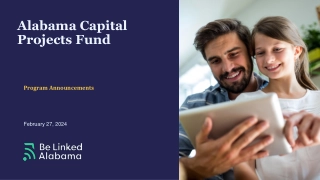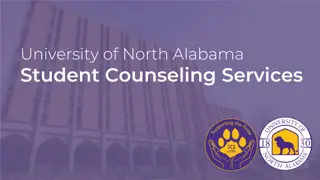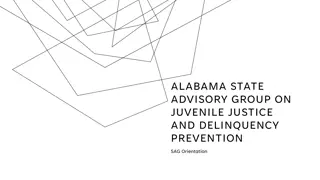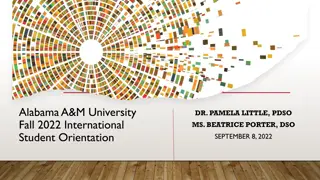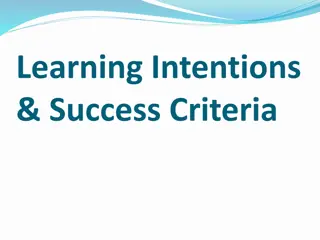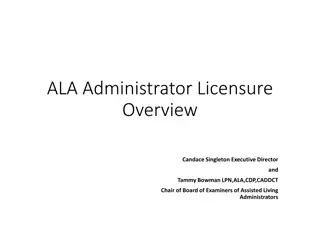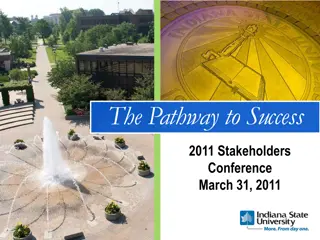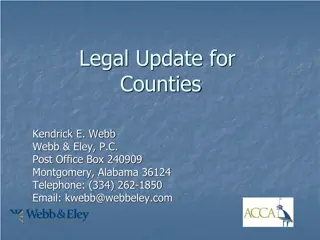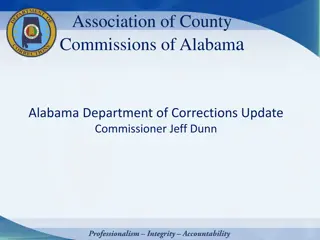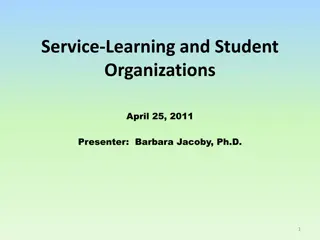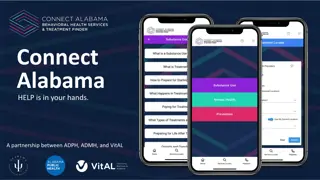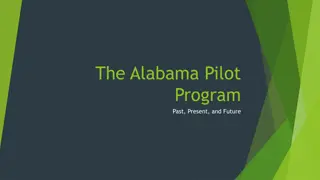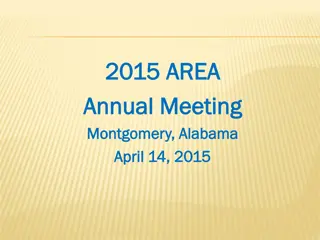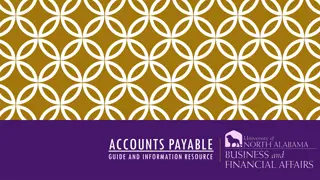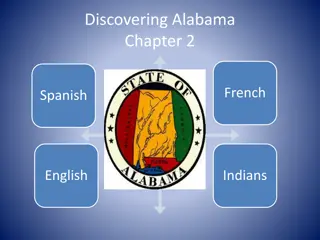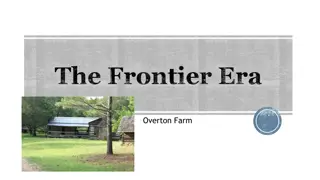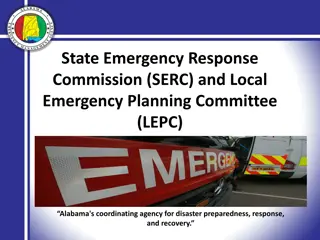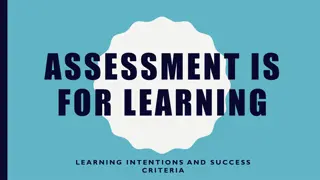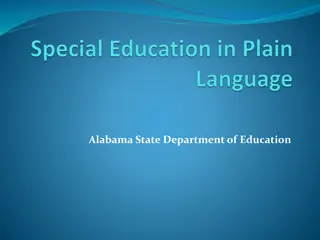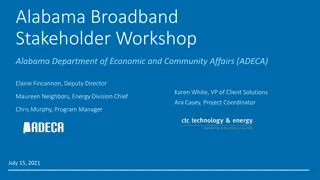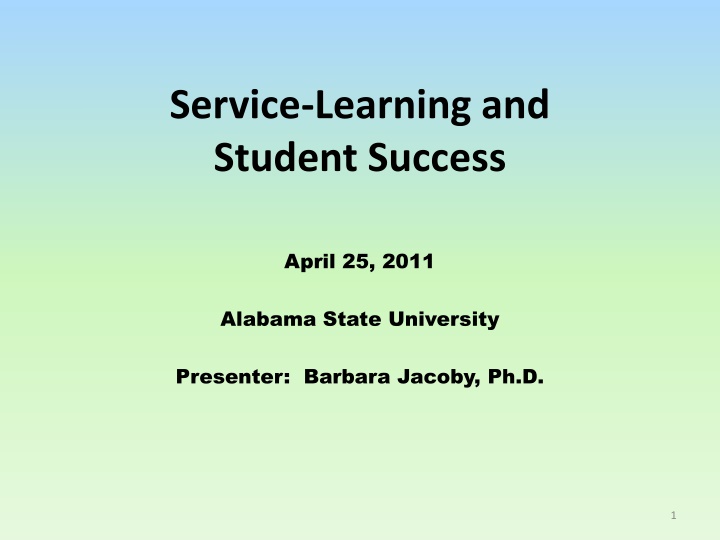
Service-Learning for Student Success at Alabama State University
The presentation by Barbara Jacoby, Ph.D., delves into the significance of service-learning at the intersection of higher education's public purpose, student engagement, and learning outcomes. It emphasizes how service-learning boosts retention rates, fosters critical thinking skills, and aligns with social problem-solving.
Download Presentation

Please find below an Image/Link to download the presentation.
The content on the website is provided AS IS for your information and personal use only. It may not be sold, licensed, or shared on other websites without obtaining consent from the author. If you encounter any issues during the download, it is possible that the publisher has removed the file from their server.
You are allowed to download the files provided on this website for personal or commercial use, subject to the condition that they are used lawfully. All files are the property of their respective owners.
The content on the website is provided AS IS for your information and personal use only. It may not be sold, licensed, or shared on other websites without obtaining consent from the author.
E N D
Presentation Transcript
Service-Learning and Student Success April 25, 2011 Alabama State University Presenter: Barbara Jacoby, Ph.D. 1
Introduction Overview of Agenda III. How to support service-learning IV. Resources to help I. Service-learning at the intersection II. What is (and is not) service-learning 2
I. Setting the Context: Service- Learning at the Intersection A. Reaffirming the public purpose of higher education B. Student engagement in learning C. Learning outcomes and assessment 3
A. Reaffirming the Public Purpose of Higher Education Social problems are growing locally and globally Higher education particularly research universities are being called on to respond 4
Center for Information and Research on Civic Engagement (CIRCLE) www.civicyouth.org Campus Compact www.compact.org 5
B. Student Engagement in Learning High Impact Practices First-year seminars Learning communities Collaborative assignments Diversity/global learning Service-Learning Undergraduate research Capstone courses 6
Service-Learning and Retention Direct relationship to success and graduation S-L students are more likely to re-enroll, interact with faculty, and study S-L provides sense of purpose S-L enables students to retain course content, develop the habit of critical thinking, and seek to be part of the solution to social problems 7
C. Learning Outcomes and Assessment Learning outcomes : State what a student is expected to know or be able to do Are expressed in terms of knowledge, skills, or attitudes 8
The focus of student assessment has shifted from an emphasis on inputs to an emphasis on outputs. 9
In service-learning, outcomes are established and assessed for students and communities. Intentions are not enough; results are what matters. 10
II. What Service-Learning Is (and Is Not) A. What is unique about service-learning B. Basic principles of service-learning 1. Reflection 2. Reciprocity C. Models of service-Learning in the curriculum 11
Service-Learning: A Balanced Approach (A. Furco, 1996) Recipient BENEFICIARY Provider Service FOCUS Learning SERVICE-LEARNING COMMUNITY SERVICE VOLUNTEERISM FIELD EDUCATION INTERNSHIP 12
Definition of Service-Learning Service-learning is a form of experiential education in which students engage in activities that address human and community needs together with structured opportunities for reflection designed to achieve desired learning outcomes. B. Jacoby, Service-Learning in Higher Education, 1996 13
Key Principles of Service-Learning Reflection Reciprocity 14
Service-Learning Models 1. Course where service-learning is optional 2. Service-learning/fourth-credit option 3. Service-learning course 4. First-year experience 15
Service-Learning Models 5. Service-learning internship or independent study 6. Field work service-learning 7. Community-based research 8. Service-learning capstone 16
Service-Learning Models 9. International service-learning 10. Course sequencing 11. Engaged department or program 12. Engaged university 17
III. Institutional Support for Service- Learning Faculty development Faculty support Faculty recognition 18
Service-Learning Offices and Centers Provide faculty development and support Serve as liaison with the community Coordinate logistical issues Offer a continuum of co-curricular activities 19
IV. Resources Campus Compact CAS www.servicelearning.org Online providers (e.g., Magna, Academic Impressions) 20
Thank you! bjacoby@umd.edu 21

